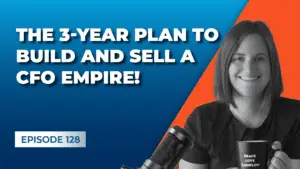In this episode, James Kennedy talks to Matt Cole about growing and scaling a SaaS business.
Matt Cole went to Chile for the first time in 1994 with JP Morgan and worked as an analyst/indentured servant for a couple of years and then got “bitten by the entrepreneurial bug”. He became an entrepreneur and an angel investor in the mid 90s and then went back to Chile in 2012, together with Riverwood capital and then in 2015 we together started SUMA SaaS, which is a platform that operates on Nubox (Chile’s leading provider of small business accounting software on the cloud).
Suma SaaS operates in Chile, Argentina and Mexico. The most comparable business to them in the English market is Quickbooks. They have a lot of things in common with each other, such as the integration of electronic invoicing, the registration of business events and payroll solutions.
How Suma SaaS Works
The local IRS in Chile has been a leader in Latin America in terms of transparency, Suma SaaS provides a cloud-based platform that helps clients with accounting for their businesses and promotes transparency, control and compliance through its features and integrations.
Are People Adopting Cloud-based Accounting Faster?
In many ways, cloud-based accounting has been a cycle of government entities promoting the digitalisation of small businesses and providing very easy tools for companies like NuBox to integrate into their platforms. Many people are realising that in addition to obligations to utilise electronic invoicing, there are many benefits to doing it as well. Such as, the increased transparency and control over your own business.
How Do You Address The Issue Of Making Software Efficient, But Not So Efficient That You Don’t Need An Accountant?
At ProcurementExpress.com we love giving our customers and any purchasing managers access to plenty of new and useful features and integrations. However, a recurring topic of conversation in the fintech space is whether providing businesses with these tools and whether optimising these tools as much as possible is going to lessen the demand for lots of jobs.
In all of the markets Suma Saas is operating in (Mexico, Chile and Argentina) they really view accountants as allies and partners. Unfortunately, their roles and the value they add is changing and Matt Cole thinks, “the most successful accounting firms are realising that they have a lot more to offer as financial advisors, than they do than simply keeping their books.”
Their best partners are partners who really use the platform to become much more efficient and much more productive with preparation of financial statements and with that information, they can provide their clients with advice, guidance and other services and help their clients become more successful with that information. ProcurementExpress.com can’t agree more! If we can make your life easier with our purchasing software and let you get a hold on your purchasing management, then why not?
Suma SaaS has seen the most transformational improvements in their clientele because they give them a software that allows them to manage their day-to-day by inputting business events, by integrating the data sources and most importantly, it gives them immediate gratification by getting more visibility on their business. That information then gets turned into the tax filings and to their regulators and their board of directors and that is powerful.
NuBox
NuBox is:
- Over 20 years old as a company.
- Helping 90,000 small businesses on their platform.
- Processing 500,000 payroll liquidations per month.
- Having clients who are issuing almost 1,000,000 electronic documents per month!
How Did They Come Up With The Vision For Their Product?
Our CEO, James, has realised that it takes a whole team of people for product management and the biggest mistake you can make is building the wrong thing. The opportunity cost of what you miss out on is too much that you lose. Matt says he is “a non-technical founder, as well as a non-technical person. So, we have an incredible product team”.
What Have They Learned From Taking A Mid-sized Company And Scaling It Up To Having Hundreds Of Thousands Of Customers?
What they have learned is that you really have to come up with a new playbook when your customers want you to scale up. This can be in terms of what your plan will be, what type of people you will meet, what processes you will use, what product you need, how you’ll support those products.
There are also different ways of scaling. Some companies are scaling geographically, others are scaling products or some are scaling via their customers. Every playbook is slightly different, but what is transversal is that the founder or CEO needs to move from being a player on the field to being a coach on the sidelines. For example, usually the players in a football game aren’t the most stressed out and it’s actually the coach who is. The players are executing what they know how to do, but it’s the coach who is stressed because he’s the one making the decisions.
What Makes A Team Member Successful In Terms Of Scaling Up?
They have to have a growth mindset and they have to want to learn new things. One of the things Suma Saas talks a lot about with their team is the failures learned from the prior week. Being able to recognise what works and what doesn’t work, being able to take ownership of that and to make your problems a learning experience and to be able to understand that failing is a part of learning. It is also important to be looking for examples in the market that you can incorporate into your ways of thinking. There are very few companies who are able to do that. Lastly, there’s something about scaling which brings out the best in individuals who want to bring out the best in the world.




